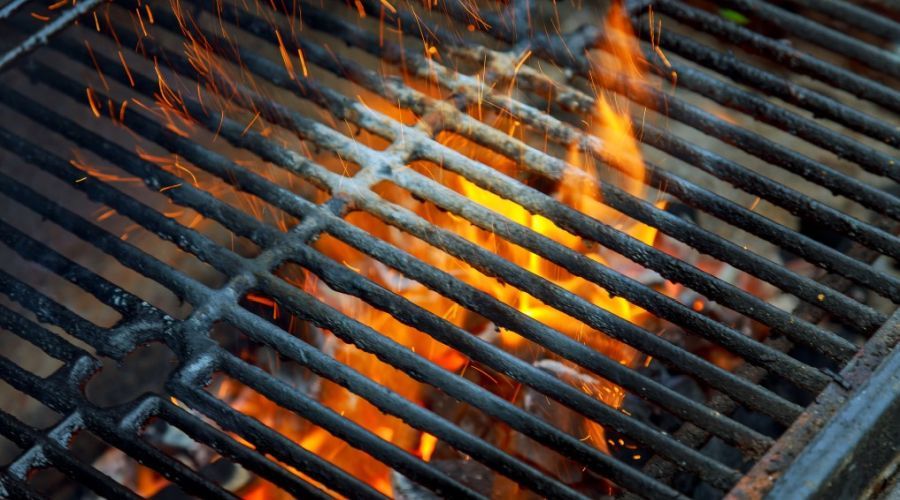Grill Grates for Fire Pits: A BBQ Enthusiast's Guide
Written By James Morgan
Barbecuing is more than just a cooking method; it's a way of life. For many enthusiasts, the sizzling sound of meat hitting the grill and the aromatic waft of smoke signals the start of a communal feast. One tool that has become indispensable for outdoor cooking is the grill grates for fire pits. These grates can transform a simple fire pit into a versatile grilling machine, offering a unique flavor and experience that traditional grills can't match.
Understanding the function and benefits of these grates is essential for anyone looking to elevate their grilling game. In this article, we'll explore the ins and outs of using grill grates for fire pits, ensuring you'll be the hero of your next barbecue gathering.
Why Choose Grill Grates for Fire Pits?
The allure of cooking over an open flame is undeniable. Fire pits provide a rustic, back-to-basics cooking experience that modern gas and charcoal grills can't replicate. When equipped with the right grill grates, fire pits can offer:
- Uniform Heat Distribution: High-quality grates ensure even cooking, preventing those annoying hot spots that can ruin a perfectly good steak.
- Enhanced Flavor: The smoky flavor imparted by the open flame is unmatched, adding depth and complexity to your dishes.
- Versatility: From searing steaks to roasting vegetables, the possibilities are endless with the right grill grates on your fire pit.
Types of Grill Grates for Fire Pits
When choosing a grill grate for your fire pit, consider the various materials and designs available:
Cast Iron Grates
Known for their durability and heat retention, cast iron grates are a popular choice for serious grillers. They require regular maintenance to prevent rust but offer unbeatable cooking performance.
Stainless Steel Grates
These grates are rust-resistant and easy to clean, making them ideal for those who prefer low-maintenance equipment. While they may not retain heat as well as cast iron, they provide excellent durability.
Porcelain-Coated Grates
Combining the benefits of cast iron with an easy-to-clean surface, porcelain-coated grates are perfect for grillers who want the best of both worlds. However, care must be taken to avoid chipping the coating.
How to Choose the Right Grill Grate Size
Size matters when it comes to grill grates for fire pits. You'll need to measure the diameter of your fire pit to ensure a perfect fit. A grate that's too small will limit your cooking space, while one that's too large may not provide stable support.
For more detailed instructions on selecting the right grate size, check out this comprehensive guide on grill grates for tailgating.
Setting Up Your Grill Grates
Proper setup is crucial for achieving the best results. Begin by ensuring that your fire pit is stable and free from debris. Next, position the grill grate securely over the pit, allowing ample space for airflow. If your grate has adjustable heights, experiment with different settings to find the optimal cooking temperature.
For more tips on maintaining your grilling equipment, visit grill maintenance tips.
Cooking Techniques and Tips
When using grill grates for fire pits, it's essential to adapt your grilling techniques to the open flame environment. Here are some tips to get you started:
- Preheat Your Grates: Allow your grill grates to heat up for 10-15 minutes before cooking. This step ensures even cooking and helps prevent food from sticking.
- Use a Meat Thermometer: Cooking over an open flame can be unpredictable. A reliable meat thermometer ensures your food reaches the desired temperature without overcooking.
- Rotate Your Food: To achieve even cooking, regularly rotate your food on the grill. This practice helps prevent burning and ensures consistent results.
For a deeper dive into grilling techniques, explore this comparison of grill grates.
Maintenance and Care
Proper maintenance of your grill grates extends their lifespan and ensures optimal performance. After each use, clean the grates with a wire brush and warm soapy water. For cast iron grates, apply a thin layer of oil to prevent rusting. Store your grates in a dry, sheltered area when not in use.
For detailed instructions on maintaining your grates, refer to this grate maintenance guide.

FAQs
What material is best for grill grates?
The best material depends on your needs. Cast iron offers excellent heat retention, while stainless steel is low-maintenance and rust-resistant.
Can I use regular grill grates on a fire pit?
It's best to use grates specifically designed for fire pits, as they are built to withstand the intense heat of an open flame.
How do I prevent food from sticking to the grates?
Preheating the grates and lightly oiling them before cooking can help prevent food from sticking.
For more tips on grilling, check out Serious Eats' guide to grill grates.



